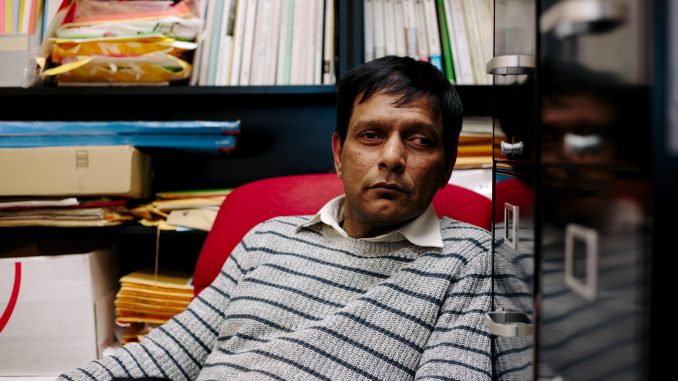
More than 30 years later, Abdul-Razak Mohamed-Imtiyaz can still see the scar on his forehead.
A native of Sri Lanka, A.R.M. Imtiyaz was in high school when he witnessed the 1983 riots as part of the country’s civil war. Tamils, the country’s ethnic minority, were subjected to violence, and their stores and properties were destroyed.
The effects of his trauma are lasting. Imtiyaz developed a stutter, and he permanently renounced his Islamic faith to become an atheist.
“The people I knew became refugees overnight,” Imtiyaz said. “Until then, I was a very firm believer in God. … I hated God because one of my friends was hurt.”
“Because I challenge my god, [other] Muslims beat me,” Imtiyaz added, pointing to his forehead. “You can see the mark.”
Since he rejected religion, his high school expelled him.
Imtiyaz was inspired to pursue political science after witnessing these events. He now teaches as an adjunct professor in the political science departement and as an adjunct assistant professor in the Asian studies department. Imityaz teaches about experiences just like his own, and he said there should be more study of these issues “beyond Western-centric views.”
“I wanted to know why people kill each other,” Imtiyaz said.
One of the courses he teaches, Foreign Governments and Politics, explores the broader context of global politics.
Freshman political science major Maha Ouni said she enjoyed the half-lecture, half-discussion class because it was a requirement for her major, but enjoyed it more than she expected. She added that Imitiyaz’ personal experiences supplement the topics of the class.
“It’s very humbling,” Ouni said. “It shows in spite of any obstacle, you can make something of yourself.”
Imtiyaz earned his Ph.D. in world history, focusing on the conflict in Sri Lanka, from Nanjing University in China, where he also taught as a visiting assistant professor just before coming to the U.S. in 2003.
Imtiyaz studies Chinese politics and conducts research about the Middle East, specifically the rise of the Islamic State since the collapse of communism after the Cold War.
Imtiyaz said his students in China would always complete assignments, but rarely spoke up in class.
“The Chinese society is very top-down,” he said. “The kids, when they grow up, they are being guided to respect the teachers. … The students seldom challenge you.”
He added teaching in the U.S. tends to involve more personal interaction. Neither style is right or wrong, he said, but he enjoys learning from his students as they learn from him.
“I have an enhanced global perspective on things,” Ouni said. “The class has made Temple feel a little more diverse and open to the world for me.”
Imtiyaz has also lived in France, Australia and Canada and speaks multiple languages, including Tamil, Sinhala, Mandarin and Arabic from his studies of the Quran.
His abstract on ISIS has been accepted for presentation at a symposium for The Oriental Club of Philadelphia, which will be held at Temple on March 26. He also plans to return to China this month for three-and-a-half months to conduct research about the Muslim minorities in the country.
“The job of political scientists is to seek answers, not to condemn,” he said. “That’s a politician’s job.”
“I believe in a kind of spiritual power, but I’m not religious,” he said. “I believe in humanity, in loving each other. … That’s more important than going to Mosque, to Temple and hating each other, right?”
Lian Parsons can be reached at lian.parsons@temple.edu.


Be the first to comment